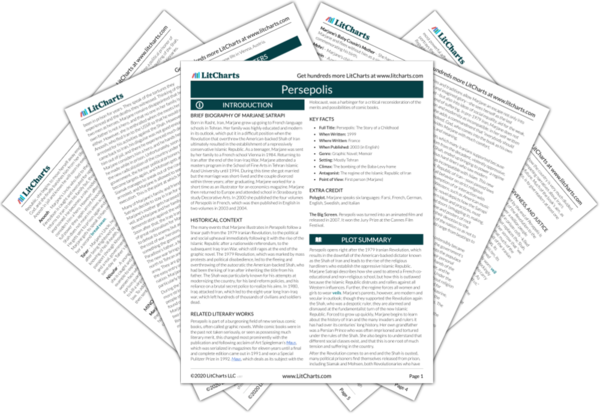LitCharts assigns a color and icon to each theme in Persepolis, which you can use to track the themes throughout the work.
Religion, Repression, and Modernity
Nationalism, Heroism, and Martyrdom
Violence, Forgiveness, and Justice
Children, War, and Growing Up
The Personal vs. the Political
